Clinical Neurosurgery Research Group (CNRG)
Contact Information
Clinical Neurosurgery Research Group (CNRG)
55 Fruit Street
Boston,
MA
02114
Email: shahaanrazak@hms.harvard.edu
Explore This Program
Overview
The Opportunity
Student-led Research. Many research projects appoint PIs, residents, and fellows as the main driving force for completion. However, the paradox is that these individuals often have less research time than the typical medical student. By flipping the paradigm and affording more ownership and responsibility to capable and dedicated students, production and collaboration can increase exponentially.
Education/Mentorship. Attendings and residents in Neurosurgery are busy, but given the nature of the field, learning often requires 1:1 focus and attention. How can we create opportunities for this kind of mentorship and learning?
Professional Growth. Neurosurgery is a fast-growing surgical subspecialty with a large barrier to entry. Through CNRG, we hope to help our members build long-lasting research and mentorship skills necessary to succeed throughout every stage of their training in this challenging field.
The Vision
The vision at CNRG is to establish a collaborative environment between individuals at all stages in their neurosurgery training through research initiatives, longitudinal mentorship, and clinical opportunities.
The Mission
Our mission is to advance the field of neurosurgery by producing rigorous and impactful research while raising the next generation of neurosurgeons through mentorship, exposure, and a dedication to collaboration.
The CNRG Difference
- Student ownership, collegial support, clear expectations
- Coordinating multiple projects simultaneously via distributed ownership and specialized roles
- Educational and teaching opportunities
- Long-term commitment
- Submit abstracts and posters to conferences, followed by manuscript submissions to academic journals
Research Projects
We coordinate multiple projects simultaneously through distributed ownership and specialized roles.
- Clinical Neurosurgery: Examining the utility of novel imaging and treatment approaches relevant to clinical neurosurgery.
- Medical Education: Developing, implementing, and evaluating new tools and strategies for medical education relevant to neurosurgery at all stages of training.
- Global Neurosurgery and Leadership: Assessing the impact of methods to facilitate professional development and mentorship opportunities in neurosurgery on a global scale.
Publications, Posters, and Presentations
West T, Mazurek M, Razak SS, Gal Z, Perez N, Burrows A, Choi B, Nahed B. "Impact of Navigated Intraoperative Ultrasound on Brain Shift and Gross Tumor Resection." Oral Presentation at the Congress of Neurological Surgeons annual meeting September 2023 in Washington, D.C.
Gal ZT, Nanda P, Hsueh B, Robertson FC, Razak SS, Mazurek M, West T, Perez N, Jones PS, Coumans JVCE, Nahed BV. "Sub-Internship Academy: Implementation and Evaluation of Single-Day Resident-Driven Focused Sub-Internship Preparation Course." Oral Presentation at the Congress of Neurological Surgeons annual meeting September 2023 in Washington, D.C.
Razak SS, Perez N, West T, Punchak M, Gal Z, Mazurek M, Leavitt L, Nair-Kanneganti A, Navarro JP, Sandoval D, Marquez J, Zhao M, Green D, Rigney G, Swift K, Duvall J, Malekina P, Hernandez A, Rao A, Mehdizadeh M, Tunsiricharoengul S, Meade P, Lawton M, Nahed B*, Quiñones-Hinojosa A*. “Hackathon as a Vehicle for Building Connections, Bridging Resources, and Stimulating Global Innovation Between Industrialized and Developing Nations.” Poster Presentation at the Congress of Neurological Surgeons annual meeting September 2023 in Washington, D.C.
Razak SS*, Wang A*, West T, Mazurek M, Perez N, Gal Z, Ng P, Filo J, Leavitt L, Athni T, Rao A, Abruzzo AR, Rapalino O, Iliopoulos O, Nahed B. “Characteristics of Resected Intracranial Hemangioblastomas in Patients with von Hippel-Lindau-associated vs. Sporadic Hemangioblastomas.” Poster Presentation at the Congress of Neurological Surgeons annual meeting September 2023 in Washington, D.C.
Group Members
CNRG's founding team is composed of medical and pre-medical students who meet weekly to align on goals for the group, develop ideas for future research, and track progress towards current projects.
Shahaan “Haan” Razak – Team Lead
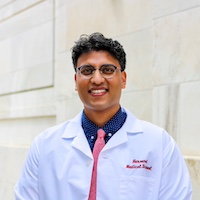 Haan was born in Queens, NY, and grew up in South Florida. He is a son of immigrants from Guyana and the first in his family to graduate from college. He graduated magna cum laude from the University of Miami, where he double majored in Kinesiology and Human & Social Development as a Jenkins Scholar. After graduation, Haan joined Teach for America and worked in Baltimore, Camden, and Philadelphia. His experiences in the classroom pushed him to transition to a career in medicine, so he completed a post-baccalaureate program at Bryn Mawr College before enrolling at Harvard Medical School. At HMS, Haan is active in multiple organizations. He is the United States Regional Director of Mission Brain, a Medical Education Representative, and Team Lead for the Clinical Neurosurgery Research Group at MGH. Haan has additional interests in leadership and innovation and will enroll at Harvard Business School as a RISE Fellow for his MBA before residency.
Haan was born in Queens, NY, and grew up in South Florida. He is a son of immigrants from Guyana and the first in his family to graduate from college. He graduated magna cum laude from the University of Miami, where he double majored in Kinesiology and Human & Social Development as a Jenkins Scholar. After graduation, Haan joined Teach for America and worked in Baltimore, Camden, and Philadelphia. His experiences in the classroom pushed him to transition to a career in medicine, so he completed a post-baccalaureate program at Bryn Mawr College before enrolling at Harvard Medical School. At HMS, Haan is active in multiple organizations. He is the United States Regional Director of Mission Brain, a Medical Education Representative, and Team Lead for the Clinical Neurosurgery Research Group at MGH. Haan has additional interests in leadership and innovation and will enroll at Harvard Business School as a RISE Fellow for his MBA before residency.
Nikki Perez – Personnel/Operations Lead
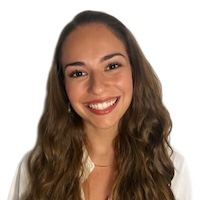 Nikki is currently a second-year medical student at Harvard Medical School interested in a career in neurosurgery. She first became interested in neurosurgery when she started doing research to understand the neurovascular response to traumatic brain injury at The Miami Project to Cure Paralysis/University of Miami as a high school sophomore. From there, she went on to study at Williams College, where she conducted clinical research in developmental psychology. During her college summers, she explored basic science research in the neurological bases of movement disorders at the Marine Biological Laboratories in Woods Hole, MA. After graduating college in 2018, Nikki spent a year working in a computational neuroscience lab at The Rockefeller University, after which she left to lead global clinical research studies for an early-stage startup for >2 years prior to starting medical school. She has particular interests in functional, cerebrovascular, and pediatric neurosurgery and is eager to see how her interests develop as she explores the field more deeply.
Nikki is currently a second-year medical student at Harvard Medical School interested in a career in neurosurgery. She first became interested in neurosurgery when she started doing research to understand the neurovascular response to traumatic brain injury at The Miami Project to Cure Paralysis/University of Miami as a high school sophomore. From there, she went on to study at Williams College, where she conducted clinical research in developmental psychology. During her college summers, she explored basic science research in the neurological bases of movement disorders at the Marine Biological Laboratories in Woods Hole, MA. After graduating college in 2018, Nikki spent a year working in a computational neuroscience lab at The Rockefeller University, after which she left to lead global clinical research studies for an early-stage startup for >2 years prior to starting medical school. She has particular interests in functional, cerebrovascular, and pediatric neurosurgery and is eager to see how her interests develop as she explores the field more deeply.
Mercy Mazurek – Projects Lead
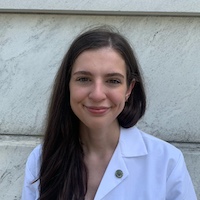 Mercy is a medical student at Harvard Medical School and currently serves as the Projects Lead for CNRG. She grew up in Mercerville, NJ for eight years before her family moved to Mesa, AZ, and later to Richmond, VA. She graduated summa cum laude from the University of Virginia with a B.S. in Chemistry. As an undergraduate, she conducted clinical research in the Neurology Department to develop an AI mobile application to detect stroke in low-resource settings as well as worked on subsampling PET imaging in a computational medical physics lab. After graduation, she spent three years at the Yale School of Medicine leading the first clinical deployment of the Hyperfine low-field, portable MRI brain scanner into ICUs, ORs, EDs, and IRs suites. Her research has been published in Nature Communications, JAMA Neurology, and Science Advances, among others. She is passionate about the use of multimodality neuroimaging and increasing the accessibility of neuroimaging methods to guide and improve neurosurgical procedures.
Mercy is a medical student at Harvard Medical School and currently serves as the Projects Lead for CNRG. She grew up in Mercerville, NJ for eight years before her family moved to Mesa, AZ, and later to Richmond, VA. She graduated summa cum laude from the University of Virginia with a B.S. in Chemistry. As an undergraduate, she conducted clinical research in the Neurology Department to develop an AI mobile application to detect stroke in low-resource settings as well as worked on subsampling PET imaging in a computational medical physics lab. After graduation, she spent three years at the Yale School of Medicine leading the first clinical deployment of the Hyperfine low-field, portable MRI brain scanner into ICUs, ORs, EDs, and IRs suites. Her research has been published in Nature Communications, JAMA Neurology, and Science Advances, among others. She is passionate about the use of multimodality neuroimaging and increasing the accessibility of neuroimaging methods to guide and improve neurosurgical procedures.
Zsombor Gal – Technology/Data Lead
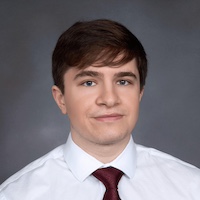 Zsombor is a medical student at Harvard Medical School who serves as the Technology/Data Lead for the Clinical Neurosurgery Research Group. He is originally from Budapest, Hungary and grew up in Lexington, Kentucky. He graduated summa cum laude and Phi Beta Kappa from Princeton University with a Bachelor of Arts in Molecular Biology and Certificate in Neuroscience. His undergraduate thesis focused on the first cell fate decision in mammalian development and won the Sigma Xi Book Award for Outstanding Thesis Research. As an undergraduate, Zsombor conducted clinical research at Children's National Hospital and the University of Kentucky Medical Center. As a medical student, Zsombor is involved with the Mission Brain organization, John Warren Surgical Society, Boston Health Care for the Homeless Program (BHCHP), and HOPE Medical Scholars initiative. He is particularly interested in cerebrovascular disorders that affect children, neurosurgical oncology, and global neurosurgery.
Zsombor is a medical student at Harvard Medical School who serves as the Technology/Data Lead for the Clinical Neurosurgery Research Group. He is originally from Budapest, Hungary and grew up in Lexington, Kentucky. He graduated summa cum laude and Phi Beta Kappa from Princeton University with a Bachelor of Arts in Molecular Biology and Certificate in Neuroscience. His undergraduate thesis focused on the first cell fate decision in mammalian development and won the Sigma Xi Book Award for Outstanding Thesis Research. As an undergraduate, Zsombor conducted clinical research at Children's National Hospital and the University of Kentucky Medical Center. As a medical student, Zsombor is involved with the Mission Brain organization, John Warren Surgical Society, Boston Health Care for the Homeless Program (BHCHP), and HOPE Medical Scholars initiative. He is particularly interested in cerebrovascular disorders that affect children, neurosurgical oncology, and global neurosurgery.
Timothy West – Compliance/Onboarding Lead
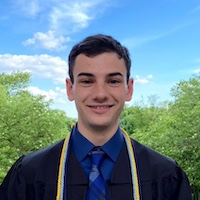 Timothy West is a clinical researcher with MGH Neurosurgery, as well as a co-founder and the Compliance/Onboarding Lead of CNRG. Having received a degree in Neuroscience from Johns Hopkins University, Timothy now studies the surgical treatment of brain tumors, neurosurgical education, and barriers to neurosurgical care in low-resource settings. His primary interests include intraoperative imaging, neuroimmunology, and characterizing tumor-brain interactions. He is a member of the nonprofit organization Mission:Brain, which strives to improve access to neurosurgical care around the world, where he serves on the US Regional Board. Timothy was raised near Boston, MA and enjoys time spent outdoors hiking and skiing, as well as cooking and board games.
Timothy West is a clinical researcher with MGH Neurosurgery, as well as a co-founder and the Compliance/Onboarding Lead of CNRG. Having received a degree in Neuroscience from Johns Hopkins University, Timothy now studies the surgical treatment of brain tumors, neurosurgical education, and barriers to neurosurgical care in low-resource settings. His primary interests include intraoperative imaging, neuroimmunology, and characterizing tumor-brain interactions. He is a member of the nonprofit organization Mission:Brain, which strives to improve access to neurosurgical care around the world, where he serves on the US Regional Board. Timothy was raised near Boston, MA and enjoys time spent outdoors hiking and skiing, as well as cooking and board games.
Li Li – Data Analyst
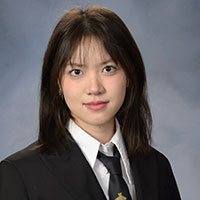 Li is a master’s student at Harvard Chan School of Public Health with a concentration in Biostatistics. She was raised in Suzhou, China. She graduated from Carnegie Mellon University with a B.S. in Chemistry and additional major in Statistics. Her undergraduate research focused on biocompatible implant materials, and she has worked with a consulting company and dealt with health economics data. She is skilled in data analysis and statistical study design for clinical trials and observational studies, as well as building prediction models with machine learning techniques. She is passionate about neurosurgery and neuroimaging and hopes to use data-driven evidence to support neurosurgical research.
Li is a master’s student at Harvard Chan School of Public Health with a concentration in Biostatistics. She was raised in Suzhou, China. She graduated from Carnegie Mellon University with a B.S. in Chemistry and additional major in Statistics. Her undergraduate research focused on biocompatible implant materials, and she has worked with a consulting company and dealt with health economics data. She is skilled in data analysis and statistical study design for clinical trials and observational studies, as well as building prediction models with machine learning techniques. She is passionate about neurosurgery and neuroimaging and hopes to use data-driven evidence to support neurosurgical research.
Ethan Wetzel – Member
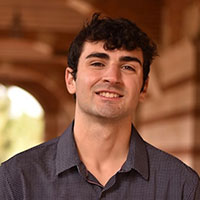 Ethan is an incoming medical student at Harvard Medical School. Originally from Modesto, CA, Ethan attended the University of California, Los Angeles where he graduated summa cum laude and received the Neuroscience Department’s Highest Research Distinction. As an undergraduate, Ethan pursued his passion for neuro-oncology and neurosurgery in the Lai Laboratory where he worked to improve the standard of care for glioma patients by identifying radiographic criteria to differentiate true tumor progression from pseudoprogression. Ethan also cofounded the Institute of Neuro Innovation, a non-profit organization aimed at improving access to care for under-resourced patients with neurological diseases. After graduation, Ethan continued his neuro-oncology work in the Cahill Lab where he focused on exploiting metabolic vulnerabilities of IDH-mutant gliomas. As a medical student Ethan is passionate about continuing to improve the care of brain tumor patients, while ensuring access to care.
Ethan is an incoming medical student at Harvard Medical School. Originally from Modesto, CA, Ethan attended the University of California, Los Angeles where he graduated summa cum laude and received the Neuroscience Department’s Highest Research Distinction. As an undergraduate, Ethan pursued his passion for neuro-oncology and neurosurgery in the Lai Laboratory where he worked to improve the standard of care for glioma patients by identifying radiographic criteria to differentiate true tumor progression from pseudoprogression. Ethan also cofounded the Institute of Neuro Innovation, a non-profit organization aimed at improving access to care for under-resourced patients with neurological diseases. After graduation, Ethan continued his neuro-oncology work in the Cahill Lab where he focused on exploiting metabolic vulnerabilities of IDH-mutant gliomas. As a medical student Ethan is passionate about continuing to improve the care of brain tumor patients, while ensuring access to care.
Alexander Wang – Member
 Alexander is an incoming first-year medical student at Case Western Reserve School of Medicine. He was born in Vancouver, Canada and graduated magna cum laude with departmental highest honors from UCLA with a Bachelor of Science in Neuroscience. In college, he was awarded the Arnold B. Scheibel Scholarship for his undergraduate research. He also co-founded the first college chapter of the Institute for Neuro-Innovation, an organization dedicated to fostering a community for those who are passionate about the brain. His neurosurgical interests include immunotherapy for glioblastoma, language disorders, and restoring nervous system deficits due to trauma and neurodegeneration.
Alexander is an incoming first-year medical student at Case Western Reserve School of Medicine. He was born in Vancouver, Canada and graduated magna cum laude with departmental highest honors from UCLA with a Bachelor of Science in Neuroscience. In college, he was awarded the Arnold B. Scheibel Scholarship for his undergraduate research. He also co-founded the first college chapter of the Institute for Neuro-Innovation, an organization dedicated to fostering a community for those who are passionate about the brain. His neurosurgical interests include immunotherapy for glioblastoma, language disorders, and restoring nervous system deficits due to trauma and neurodegeneration.
Faculty Advisors
Brian Nahed, MD, MSC
 Dr. Brian Nahed is a neurosurgeon specializing in Brain Tumors (Glioblastoma, Low Grade Gliomas, Meningiomas, Metastatic Brain Tumors) and Brain Mapping / Intraoperative Imaging. He is Director of Neurosurgery Residency Program at MGH and Harvard Medical School and Associate Professor of Neurosurgery.
Dr. Brian Nahed is a neurosurgeon specializing in Brain Tumors (Glioblastoma, Low Grade Gliomas, Meningiomas, Metastatic Brain Tumors) and Brain Mapping / Intraoperative Imaging. He is Director of Neurosurgery Residency Program at MGH and Harvard Medical School and Associate Professor of Neurosurgery.
Dr. Nahed specializes in brain tumors of the eloquent cortex (language and motor areas of the brain) which require awake surgery, language and motor mapping, and subcortical stimulation. Dr. Nahed specializes in intraoperative technology and minimally invasive procedures to treat brain tumors aggressively and safely.
Born in New York, Dr. Nahed attended UCLA where he majored in Neuroscience, graduating Phi Beta Kappa and with the department's Highest Honors. He attended the Yale School of Medicine where he was awarded the Doris Duke Clinical Research Fellowship and graduated with honors. Dr. Nahed completed his neurosurgery residency at the Massachusetts General Hospital; where Dr. Nahed completed a postdoctoral fellowship with Drs. Daniel Haber and Shyamala Maheswaran in the MGH Cancer Center.
Dr. Brian Nahed was recruited to the MGH Department of Neurosurgery, MGH Brain Tumor Center, and Harvard Medical School in 2011. Dr. Brian Nahed's research focuses on developing the first blood based test to diagnose and monitor brain tumors. In collaboration with Drs. Haber, Maheswaran, and Stott, Dr. Nahed published the first evidence of circulating tumor cells in the blood of patients with glioblastoma. Drs Nahed and Stott run an NIH funded laboratory developing the first blood test for patients with brain tumors.
As the Director of the MGH Neurosurgery Residency Program, he has led neurosurgical education. He serves on the Executive Committee of the Congress of Neurological Surgeons and the CNS/AANS Executive Committee For Brain Tumors. He is Co-Chair of the CNS Leadership Institute. He is an active member of the American Association of Neurological Surgeons and Council State Neurological Societies. Dr. Nahed serves as the lead neurotrauma consultant for the National Football League (NFL).
Bryan Choi, MD, PhD
 Dr. Bryan Choi, MD, PhD is an attending neurosurgeon in the Department of Neurosurgery and the Stephen E. and Catherine Pappas Center for Neuro-Oncology. He specializes in surgical care for patients with benign and malignant brain tumors. Born in Cleveland, Ohio, Dr. Choi graduated summa cum laude from Harvard College and attended Duke University School of Medicine, where he completed dual MD and PhD training in the field of tumor immunology under the guidance of Drs. John Sampson and Darell Bigner. During his neurosurgery residency at the Massachusetts General Hospital, he pursued a postdoctoral fellowship in the laboratory of Dr. Marcela Maus, focused on developing CAR T-cell therapies for cancer. He has published broadly, holds several patents, and has lectured internationally on immune-based treatments for brain tumors. Dr. Choi was recruited to join the faculty of the MGH Brain Tumor Center and Harvard Medical School where he is currently in active practice. He also leads a research laboratory with the goal of developing the next generation of cell therapies and clinical trials in neuro-oncology.
Dr. Bryan Choi, MD, PhD is an attending neurosurgeon in the Department of Neurosurgery and the Stephen E. and Catherine Pappas Center for Neuro-Oncology. He specializes in surgical care for patients with benign and malignant brain tumors. Born in Cleveland, Ohio, Dr. Choi graduated summa cum laude from Harvard College and attended Duke University School of Medicine, where he completed dual MD and PhD training in the field of tumor immunology under the guidance of Drs. John Sampson and Darell Bigner. During his neurosurgery residency at the Massachusetts General Hospital, he pursued a postdoctoral fellowship in the laboratory of Dr. Marcela Maus, focused on developing CAR T-cell therapies for cancer. He has published broadly, holds several patents, and has lectured internationally on immune-based treatments for brain tumors. Dr. Choi was recruited to join the faculty of the MGH Brain Tumor Center and Harvard Medical School where he is currently in active practice. He also leads a research laboratory with the goal of developing the next generation of cell therapies and clinical trials in neuro-oncology.
Ganesh Shankar, MD, PhD
 Dr. Ganesh Shankar is a board-certified neurosurgeon at the Massachusetts General Hospital. He completed his neurosurgery residency at Mass General and a fellowship in complex spine surgery at the Cleveland Clinic. His clinical specialization encompasses the evaluation and surgical management of all spine pathologies, ranging from degenerative disorders, primary and metastatic spine tumors, intradural pathologies, spine infections, and spine trauma. His surgical approaches include minimally invasive techniques. He specializes in complex spine procedures requiring revision surgery and correction of spine deformities.
Dr. Ganesh Shankar is a board-certified neurosurgeon at the Massachusetts General Hospital. He completed his neurosurgery residency at Mass General and a fellowship in complex spine surgery at the Cleveland Clinic. His clinical specialization encompasses the evaluation and surgical management of all spine pathologies, ranging from degenerative disorders, primary and metastatic spine tumors, intradural pathologies, spine infections, and spine trauma. His surgical approaches include minimally invasive techniques. He specializes in complex spine procedures requiring revision surgery and correction of spine deformities.
Dr. Shankar also performs research on bone biology and molecular determinants of primary and metastatic spine neoplasms. He serves as the Neurosurgical Director of Biospecimen Banking for the Department of Neurosurgery. His research has been recognized by awards from the American Association of Neurologic Surgeons, Congress of Neurological Surgeons, Joint Section on Disorders of the Spine and Peripheral Nerves, and AO Spine North America.
William Curry, MD
 Dr. William Curry is an attending in the Department of Neurosurgery and in the Pappas Center for Neuro-oncology. He provides surgical care for patients with benign and malignant tumors of the brain, skull-base, and spine.
Dr. William Curry is an attending in the Department of Neurosurgery and in the Pappas Center for Neuro-oncology. He provides surgical care for patients with benign and malignant tumors of the brain, skull-base, and spine.
Dr. Curry is a graduate of Harvard College, attended Cornell University Medical College in New York City and trained in Neurosurgery at Massachusetts General Hospital. He has been on the neurosurgical faculty at Mass General Hospital since 2004. He is a national leader in the neurosurgical care of patients with tumors of the brain, skull-base, and spine. He is highly skilled in both open and endoscopic/minimally invasive techniques and is known for his ability to handle the most advanced surgical challenges. Dr. Curry leads and participates in multiple clinical trials for patients with brain tumors and is particularly interested in the development of cellular and immune-based therapies for malignant tumors. He is an integral part of the Pappas Center for Neuro-oncology, the MGH/MEEI Cranial Base Center, and the Harris Chordoma Center at Massachusetts General Hospital.
